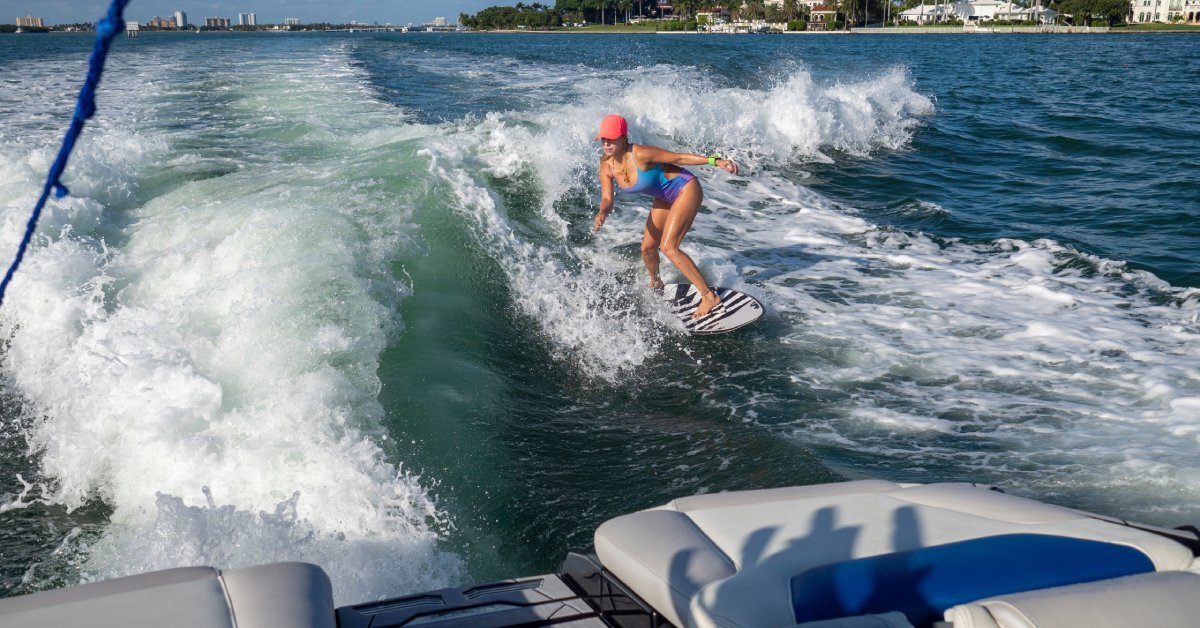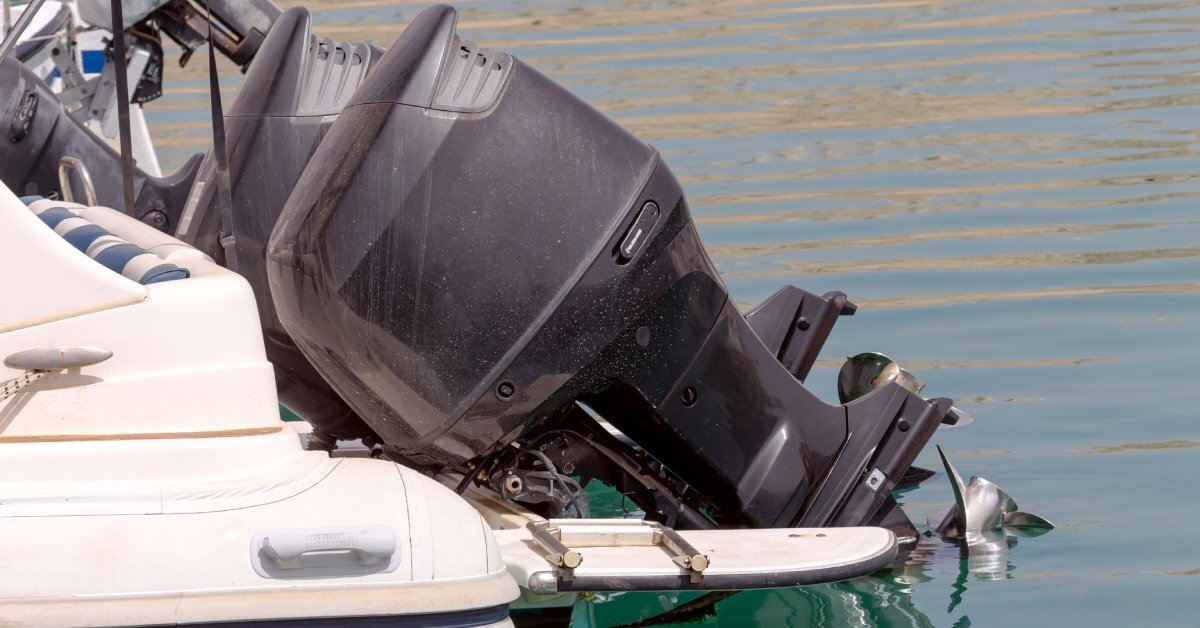How Much Horsepower Is Right for Your Boat?

Determining how much horsepower is right for your boat is crucial for optimal performance, safety, and enjoyment on the water. Whether you're a seasoned boat owner or considering your first purchase, understanding how much horsepower you need will help you make the best decisions for your vessel.
Let’s break down everything you need to know about horsepower, ensuring you invest in the right motor for your boat. By the end, you’ll feel confident about determining the perfect setup for your boat.
How Horsepower Impacts the Boating Experience
Horsepower (HP) is a measure of an engine's power and is a critical factor in determining how your boat will perform on the water. Different boats require varying amounts of horsepower, depending on their size, weight, and intended purposes. For instance, a small fishing boat will have different horsepower requirements compared to a larger pontoon boat or a high-speed performance boat.
Boat manufacturers typically provide a specification plate or manual that details the recommended horsepower range for your vessel, referred to as the maximum horsepower rating. This rating isn’t just a suggestion; it’s a critical safety guideline dictated by factors like hull design, buoyancy, and handling characteristics. Operating a boat with insufficient horsepower can lead to sluggish performance while exceeding the maximum rating can compromise safety and violate local laws.
It’s also important to note how weight impacts the horsepower you’ll need. A boat loaded with passengers, gear, and fuel requires more power than an empty vessel. Remember this while assessing your boat's needs to ensure you find the right motor to handle real-world conditions without straining your engine or reducing fuel efficiency.
Finally, environmental conditions can influence how your boat’s horsepower performs. For example, boating at high altitudes or against strong currents may require additional power to maintain performance. Weather, wind, and water temperature can affect how efficiently your engine operates, so factoring in where and when you typically boat is another smart move when determining the necessary horsepower for your boat.
Matching Horsepower to Your Boating Activities

Your boating activities play a significant role in determining the appropriate horsepower for your boat. Not all engines are created equal, and the horsepower you choose will depend on how you plan to use your boat. For leisurely cruises around calm waters, you can opt for modest horsepower levels that provide reliable and steady performance without excessive speed.
On the other hand, if you’re planning to tow water-skiers, wakeboarders, or tubes, you’ll need a higher horsepower engine that delivers rapid acceleration and enough power to maintain speed while under load. Similarly, fishing enthusiasts using high-speed bass boats will benefit from responsive engines with adequate horsepower to get them to their favorite fishing spots quickly.
It’s also worth considering that manufacturers design certain watercraft, such as pontoon boats, to handle various activities. If you own a pontoon boat, you’ll want a motor that balances the power required for cruising, relaxing, or towing light recreational equipment. Understanding your primary boating activities will help you make the best decision when choosing the right horsepower for your boat.
For those who plan to use their boats for a mix of activities, selecting a versatile engine with mid-to-high horsepower may offer the best of both worlds. You’ll have enough power for sports and reliability for long, scenic rides, making your boating experience more flexible and enjoyable.
The Consequences of Too Much or Too Little Horsepower
Choosing the wrong horsepower for your boat can lead to several safety and performance issues. Underpowered boats often struggle to get on plane, which is when the hull glides smoothly over the water’s surface. This difficulty can result in a sluggish experience, inefficient fuel consumption, and poor ride quality, especially in rougher conditions.
Meanwhile, exceeding the recommended horsepower limit can present significant safety concerns. Overpowered boats may become difficult to handle, particularly at higher speeds, putting you and your passengers at risk. Additionally, overloading the engine affects fuel efficiency, accelerates wear and tear, and can void the manufacturer’s warranty.
Both too much and too little horsepower are problematic, but the good news is that most boats come with a recommended horsepower range that provides a clear starting point for selecting an engine. When in doubt, it’s always better to stay within the recommended limits and lean toward the upper end of the range, especially if you intend to carry passengers or heavy equipment.
Benefits of Upgrading to a Modern Outboard Motor
Modern outboard engines offer excellent performance, fuel efficiency, and reliability. If your boat currently has an older motor, upgrading to a new engine could improve your boating experience. Yamaha Outboard motors are known for their advanced technology, durability, and smooth operation, making them a popular choice among boaters.
Upgrading an outboard motor also allows you to fine-tune your boat’s performance by selecting an engine with the appropriate horsepower for your needs. Today’s outboard motors feature innovations, such as electronic fuel injection, digital controls, and optimized propeller designs, ensuring you get peak performance without sacrificing fuel efficiency.
Additionally, modern outboards run quieter and produce fewer emissions compared to older models, creating a more enjoyable and eco-friendly experience on the water. Whether you’re replacing an outdated motor or outfitting a new boat, investing in a high-quality outboard motor ensures dependable performance for many years.
Tips for Choosing the Right Horsepower for Your Boat

Selecting the right horsepower for your boat begins with reviewing the manufacturer’s specifications and maximum horsepower rating. Use this as a guideline to narrow down your options and avoid exceeding safe operating limits. Additionally, factor in real-world conditions, such as passenger loads, gear, and intended activities.
Consult with a trusted dealer or marine professional when purchasing your engine. Their expertise can provide valuable insights into engine performance, maintenance requirements, and compatibility with your vessel. They can also help you weigh the pros and cons of different models to determine the best fit for your needs and budget.
Testing your setup before committing to an engine is another reliable approach. Many dealers offer demo days or allow customers to test engines to get a feel for their performance. This hands-on experience is invaluable for confirming your horsepower choice before making a final decision.
Enjoy Everything Boating Has To Offer
So, how much horsepower is right for your boat? The key is to understand your boat’s specifications, consider your activities, and consult with the professionals from RJ Nautical.
Whether you're upgrading your motor or purchasing a new boat, the right horsepower will ensure you get the most out of your boating experience. Take the time to make the right choice and enjoy everything boating has to offer.
